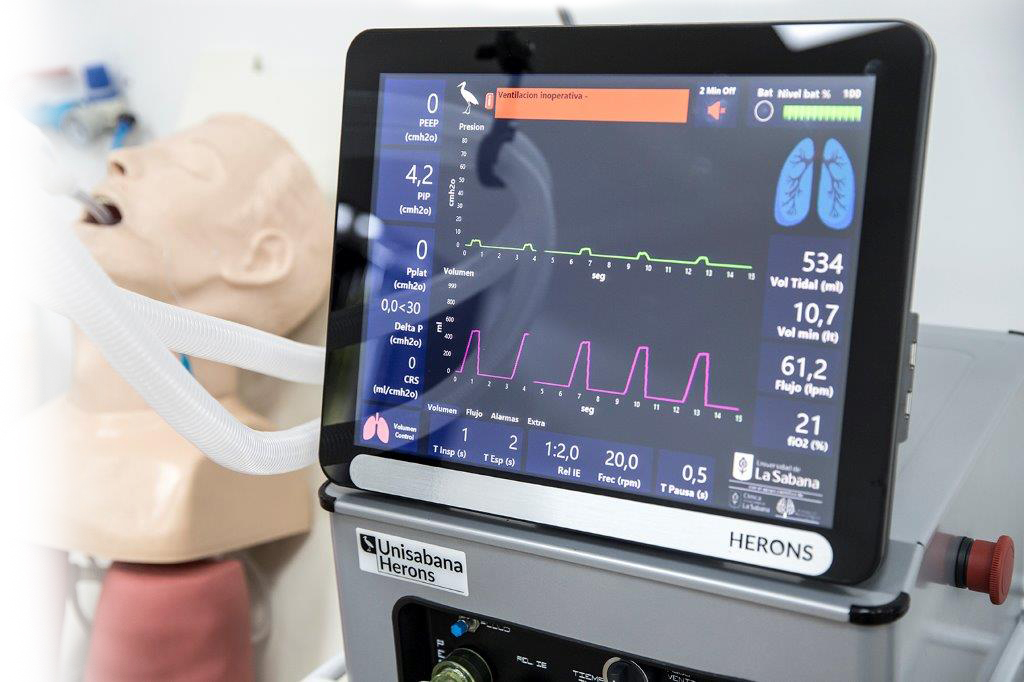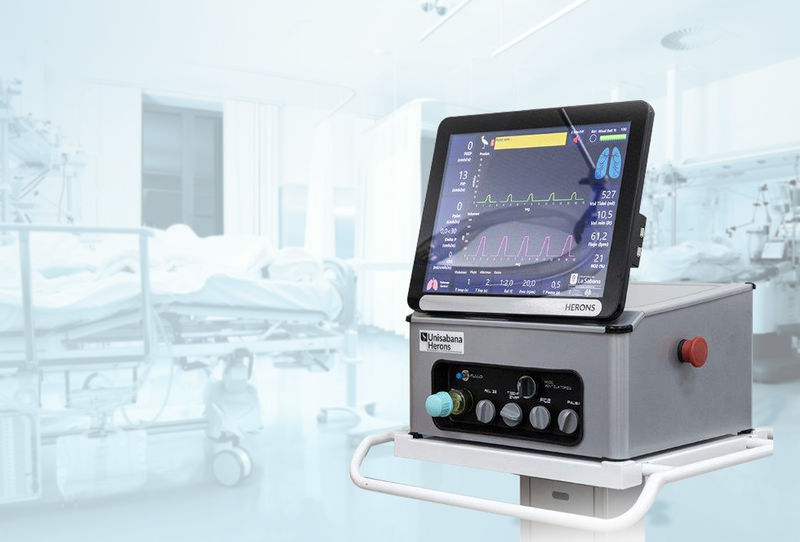After extensive testing, the ventilators were found to meet the Invima’s high-standard requirements for testing in humans.
The Unisabana Herons initiative, the only one in the country to have achieved this level of progress, has built an alliance with Challenger and Indumil as manufacturers, the Amarey Nova Medical group as a distributor — which, in turn, will take care of service processes —, Fundación Solidaridad por Colombia, in charge of managing donations, and Innpulsa, as liaison with the national government.
Similarly, Grupo Aval, Bavaria, Club Rotarios Bogotá Occidente, Banco Finandina, and ProBogotá Región, among others, have already announced their support with major donations.
Always with the support of Invima, and keeping in tune with their decisions, the initiative could provide the country with approximately 350 respirators this month. Moreover, with the production capacity of Challenger and Indumil, we could deliver several thousand units based on the country’s demand.
Colombia’s National Institute for Drug and Food Surveillance (Invima) approved clinical protocols and authorized testing of the Unisabana Herons device in humans.
The clinical trials will take place in two stages: The first one will be with a group of patients, during which the ventilator’s efficiency will be tested to normalize gas exchange, as well as the device’s safety in order to avoid adverse events. Once this stage is cleared, the second phase of clinical trials will take place, with a larger group of patients, aiming to evaluate the occurrence of side effects from using the ventilator.
Universidad de La Sabana, Challenger, and Indumil are manufacturing the ventilators for the clinical trials. The hospitals authorized to conduct the trials are Fundación Cardioinfantil and Fundación Neumológica Colombiana, where medical and healthcare staff will start training to ensure proper use of the device.
Clinical trials involve assessing the ventilators in patients with indications for invasive mechanical ventilation and in whom volume-controlled ventilation can be used. “In this case, we evaluate whether the ventilator is effective in improving gas exchange, that is, the transfer of oxygen from the air coming from the ventilator and into the patient’s blood vessels inside the lung, and extracorporeal carbon dioxide removal while maintaining adequate blood pH levels. We observe the ventilator’s efficiency in achieving adequate parameters that are consistent with the goals usually set by intensivists for the management of patients subject to mechanical ventilation,” says Luis Fernando Giraldo, professor for the School of Medicine of Universidad de La Sabana and Director of Interventional Pneumology Services at Fundación Neumológica Colombiana.
Safety will also be monitored to avoid exceeding the limits in terms of air pressure in the airways and lung capacity of the patient, oxygen concentrations, respiratory rate, and inspiration (inhalation) and expiration (exhalation) time ratios, and to make sure there are no mistakes during the observation period while keeping the ventilator’s parameters stable.
Furthermore, the ventilator will be assessed for side effects, and whether or not it behaves similarly to commercial ventilators.
The ventilator developed by Universidad de La Sabana has volume-controlled ventilation mode; it allows the administration of PEEP (positive-expiratory pressure), regulates respiratory rate, oxygen concentration, and inspiration and expiration time ratios. It also includes conventional air filters, protecting it against particles and microorganisms, as well as a graphical interface that allows monitoring pressure and volume.
The main goal of mass production of this device is to respond to the possible lack of supply of ventilators during the country’s current situation and, thus, to develop a low cost and fast manufacturing alternative to serve patients and contribute to saving as many lives as possible.
Specialized medical staff is scheduled to start training, where they will learn about the ventilator in detail, as well as its benefits and operation, among other specifications. The session will take place at the Fundación Neumológica Colombiana facilities.

